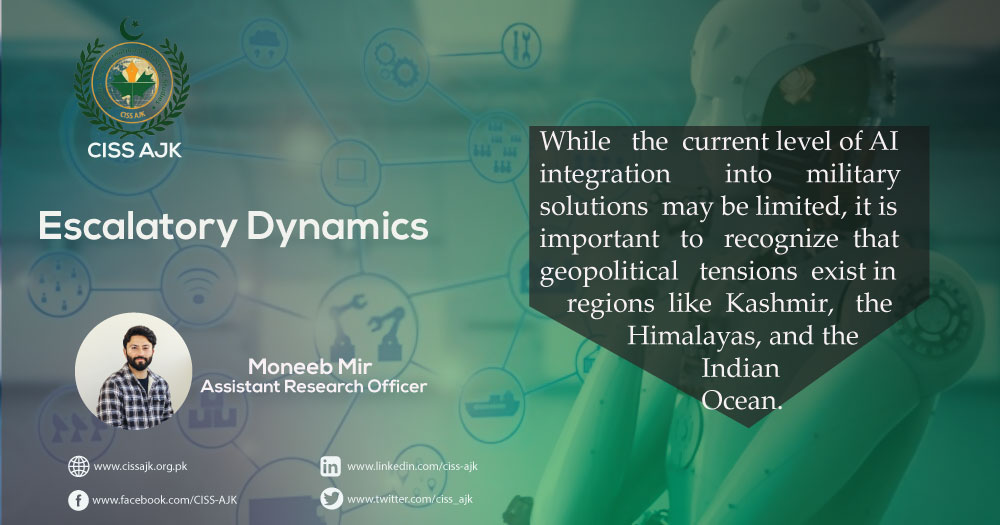783
As the world grapples with emerging technologies, concerns have been raised in this regard that AI advancements could erode the underlying principle of strategic stability. So far, there is little research that indicates how existing concepts of escalation, nuclear terrorism, and classical deterrence theories might apply (or be tested) in the digital age—increasingly defined by developments in AI and autonomy—where perfect information and rational decision-making cannot be assumed.
Just as in the past, accidents involving complex weapons systems were often made worse by interactions between humans and machines. Now, with the rise of non-human AI-enhanced systems, operating at faster speeds, with more advanced technology, and quicker decision-making, it is expected that it will be even harder to de-escalate tense situations and more likely that accidents will happen in the future. As advanced technologies, such as cyber capabilities, hypersonic weapons, and AI and autonomous weapons become more widespread, states will face a growing challenge in addressing this vulnerability. In order to mitigate, the states now will have to enhance their First Strike capability alongside their efforts to minimize the vulnerability.
The use of AI-driven advancements in intelligence, surveillance, and reconnaissance could jeopardize the survivability of previously secure second-strike nuclear forces. Technologically advanced nations would gain the ability to locate, identify, track, and destroy their adversaries; through concealed and mobile launch platforms.
Currently, the probability of an armed conflict centered around the use of AI between India and China or India and Pakistan is low. This is mainly because of the fact that the level of AI integration into military solutions is still in its early stages and is considered to be mature. Indeed, while the current level of AI integration into military solutions may be limited, it is important to recognize that geopolitical tensions exist in regions like Kashmir, the Himalayas, and the Indian Ocean. Additionally, the competition between India and China in areas such as space exploration adds another layer of complexity. While it is challenging to predict future events with certainty, it is true that the potential for armed conflict cannot be entirely ruled out in these contexts.
The potential scenarios of these conflicts can be viewed as steps along an escalation ladder. It is crucial to acknowledge the role of AI as it relates to the escalation especially considering that China, India, and Pakistan are acquiring early-warning and ballistic missile defense systems, advanced missile technologies (including hypersonic weapons), and potentially dual-capable combat unmanned vehicles (UAVs) and unmanned underwater vehicles (UUVs). As these countries enhance their military capabilities, including AI integration, the likelihood of AI playing a significant role in potential escalation scenarios increases. In the relatively early stage of development of autonomous intelligence, ISR (intelligence, surveillance, and reconnaissance), early warning systems, and ballistic missile defense capabilities, there is a heightened risk of false alarms originating from these systems. If a country’s early warning, ISR, or BMD sensors in close proximity to an adversary were to provide erroneous information, it could be mistakenly perceived as a valid threat, potentially leading to a preventive or preemptive response involving nuclear forces.
The deployment of dual-capable autonomous platforms by China, India, and Pakistan could trigger concerns and suspicions among the countries. The introduction of such platforms might cause one country to fear a surprise nuclear attack if one or both of the countries were to deploy such a platform. This could further exacerbate tensions and potentially increase the risks of a miscalculated response or escalation. Both of these aspects highlight the importance of considering the implications of AI in military strategies and the need for caution in managing potential risks to strategic stability in the region.



